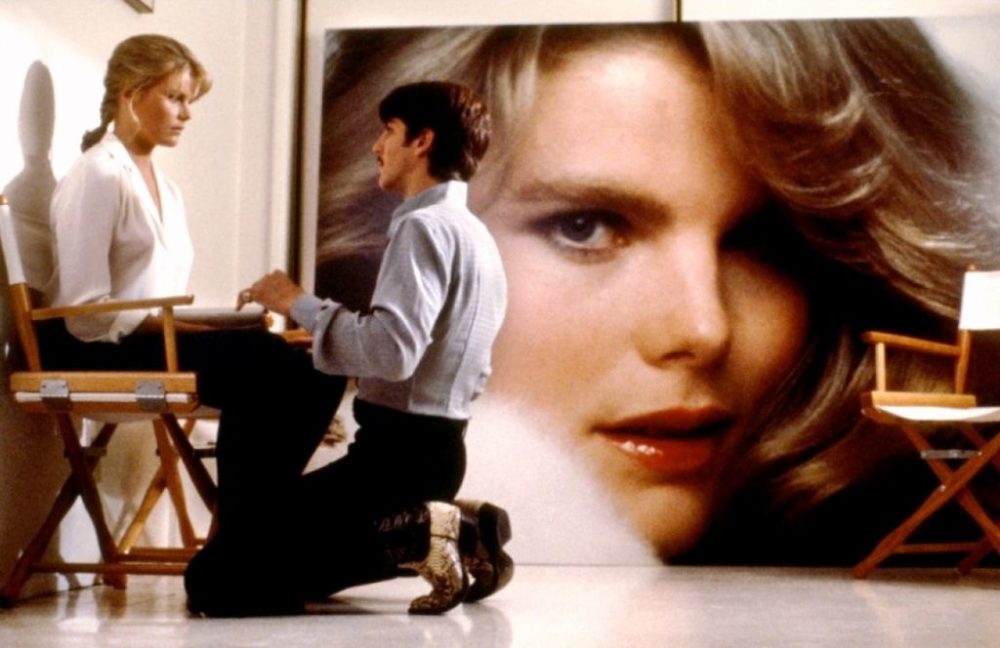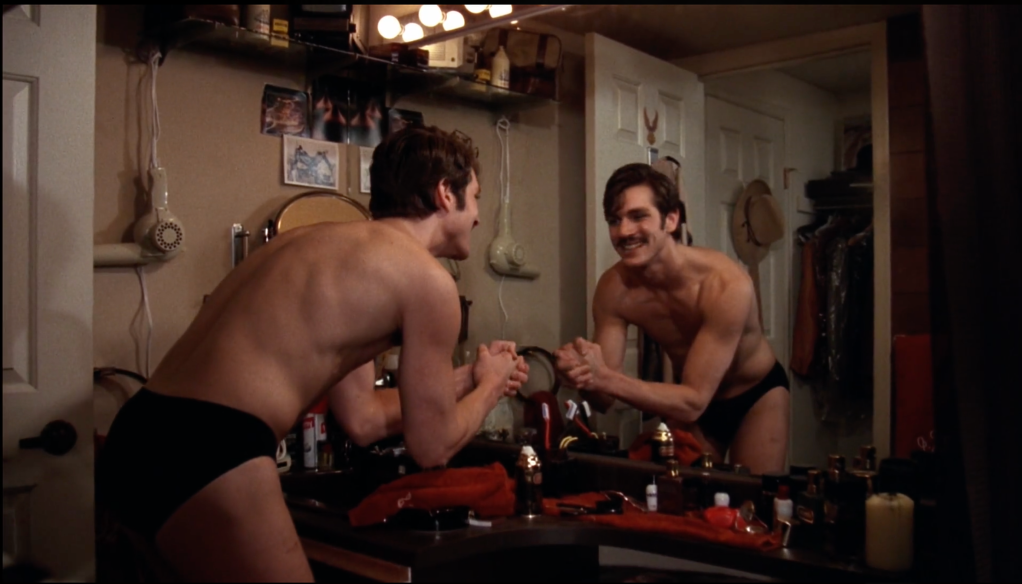Star 80 (1983); The Nuance of an Portraying an Evil Character
At the time of this writing, Eric Roberts has 681 acting credits to his name, and that’s not including his 85 upcoming projects. The magnitude of Eric Roberts’ career should have made him a household name, yet few can name more than one of his films. The Dark Knight, The Cable Guy, Phat Girlz, Inherent Vice, the Stalked By My Doctor series, The Killers’ “Mr. Brightside,” and Mariah Carey’s “We Belong Together” music videos all have Roberts as the common denominator. He played a role in every single genre put to the screen. Until now, I’ve only known Roberts as Julia Roberts’ brother, Emma Roberts’ father, and a “failed actor” on his own. That is until I watched Star 80 (1983), directed by Bob Fosse and co-starring Mariel Hemingway. At the time of this writing, I’m obsessed with Eric Roberts. Not only is he a prolific star who has figured out how to become the definition of a “working actor,” but the man has tremendous talent. If Star 80 is the only proof he needs to verify that claim, then so be it.
I’m sure Roberts has career-defining roles and moments on screen that some devoted fan out there who has watched more than 0.5% of his filmography can point to, but my introduction through Star 80 is warranted. It’s not an easy movie to digest. Star 80 is a true crime drama depicting the rise and untimely 1980 murder of Playboy Playmate Dorothy Stratten (Hemingway) by her husband Paul Snider (Roberts). The gruesome story is doubly morally questionable by a script that unfolds from the perspective of Paul. We follow his journey as a two-bit hustler who serves as a Svengali to the naïve teen beauty, helping launch her into stardom as a model turned actress. Dorothy eventually meets director Peter Bogdanovich (who demanded his name be changed in the film) and decides to leave the insecure, emotionally stunted Paul. But she’s never given the chance. Paul ended both of their lives in a murder-suicide. Star 80 was released shortly after Stratten’s murder, a mere three years to be precise.
However, this isn’t an essay about the morality around the making of Star 80. This is about the finished product and its effect on this audience member. For Fosse’s final film before his death, the director embraced making a film that Roger Ebert called “devastating, violent, hopeless, and important.” Fosse’s camera work captures a mix of gentle tenderness with genuinely terrifying moments. There’s a thick layer of tension lining the film from the moment the story begins. And while the feeling of rigid dread permeates the film, there’s a palpable restraint in Fosse’s approach to this story. We’re dragged into the depths of venomous despair the minute we meet we meet Paul. Our only saving grace from the bleakness is Dorothy. Though we watch Dorothy navigate a world of vultures that feed off innocence and obsess over vanity, she’s written with silent strength and agency.
Paul alternatively proves to be the biggest vulture. He’s an insecure low-life chasing more than the American dream. He’s chasing validation and self-love from external factors. He cannibalizes media to regurgitate superficial pieces back to strangers for approval. Therefore, Dorothy is incapable of giving him anything because what he wants must come from within. Paul is dangerous because he doesn’t grasp how empty he is inside. Fosse’s script could have been a simplistic story of how this man let his emptiness and jealousy lead him to murder, but Fosse resists. He instead gives audiences a rather tender drama about the breakdown of a marriage marred by obsession and envy.
Roberts’ strength here is that he doesn’t approach the role with a one-note villainous slant. He brings a gentleness to Paul, enough to make sense of why a kind, naïve soul like Dorothy would have fallen for him. Roberts delivers his performance with instincts of loving kindness and bitter rage. Roberts’s Paul is a pathetic, small man that we pity. But just because we feel those complicated emotions doesn’t mean we align with his character in any way. Fosse’s script and Roberts’ portrayal are too intricate for that. Dorothy is first and foremost the main character, and Hemingway delivers a stellar performance that demands empathy and bearing witness even when all we want to do is look away.
I have been mesmerized by Roberts and Hemingway’s performances since first watching this film a month ago. Perhaps Fosse’s career as a dancer, choreographer, and director of musicals gave him an advantage when it came to directing his actors in Star 80. Body language plays a major part in how Hemingway and Roberts play off each other and present themselves to the camera. This is a testament to the script’s foresight, as Paul often tells Dorothy, and later her younger sister, to straighten up when they walk to affect how they appear to others. Nevertheless, Roberts’s skill as an actor made him aware of how to use his body throughout the film. In a 2023 interview with Adika Live!, Roberts recalled taking inspiration from an assortment of Los Angeles dwellers but primarily from Fosse himself, even imitating his walk.
Roberts makes this terrible character charming and worthy of pity. He obscures how audiences should feel, an element of art that has all but disappeared in today’s climate. Writer Soraya Roberts reflected on this very notion in her critical analysis of Martin Scorsese’s Killers of the Flower Moon for Defector. In the piece, she reflects on art’s current reliance on “prescriptive morality,” where art has turned into telling audiences what’s morally good before we have the chance to evaluate it ourselves. We’ve come to value a film’s worth based on its morals and not on its aesthetic qualities. I argue that this is the very reason why Star 80 and Roberts’s performance aren’t lauded by newer audiences.
But I understand the resistance to embracing a film like Star 80. Unlike a modern-day counterpart like Paul Thomas Anderson’s Boogie Nights, Star 80 doesn’t end with hope. We know things won’t end well. Fosse reminds us of this in the opening moments of the film, and we see it in flashbacks when Paul’s venomous hate and rage spill out in soliloquies. Though these moments are the film’s weakest, they remind us whose perspective we’re tied to, which is not only Paul’s but the men who surrounded Dorothy, including Playboy magnate Hugh Hefner. Fosse portrays Hefner as a “father figure” to Dorothy, despite accounts that he sexually assaulted her. This is no doubt in part because of Playboy’s momentous status during the 1980s.
Star 80 is a story based on sensationalism; a deeply American sentiment seen in our desire to latch onto true crime stories that feed our negative biases against one another. Nevertheless, I’m much more interested in the conversation around feelings of ethical ickiness that come with movies like Star 80. Roberts as an actor gave audiences a multifaceted character. He shines with likability even though he proves to be a monster. Scorsese expressed similar sentiments when he described his latest film’s main character Ernest: “…He’s weak, and he’s dangerous, but there’s still love there. And that’s kind of disturbing but, at the same time, it’s human. It’s what we are.” Roberts in Star 80 is repulsive and yet charming because he’s human. He possesses a weakness of character that’s rare to see in art anymore, and for that reason alone, I can’t get this movie out of my head.





